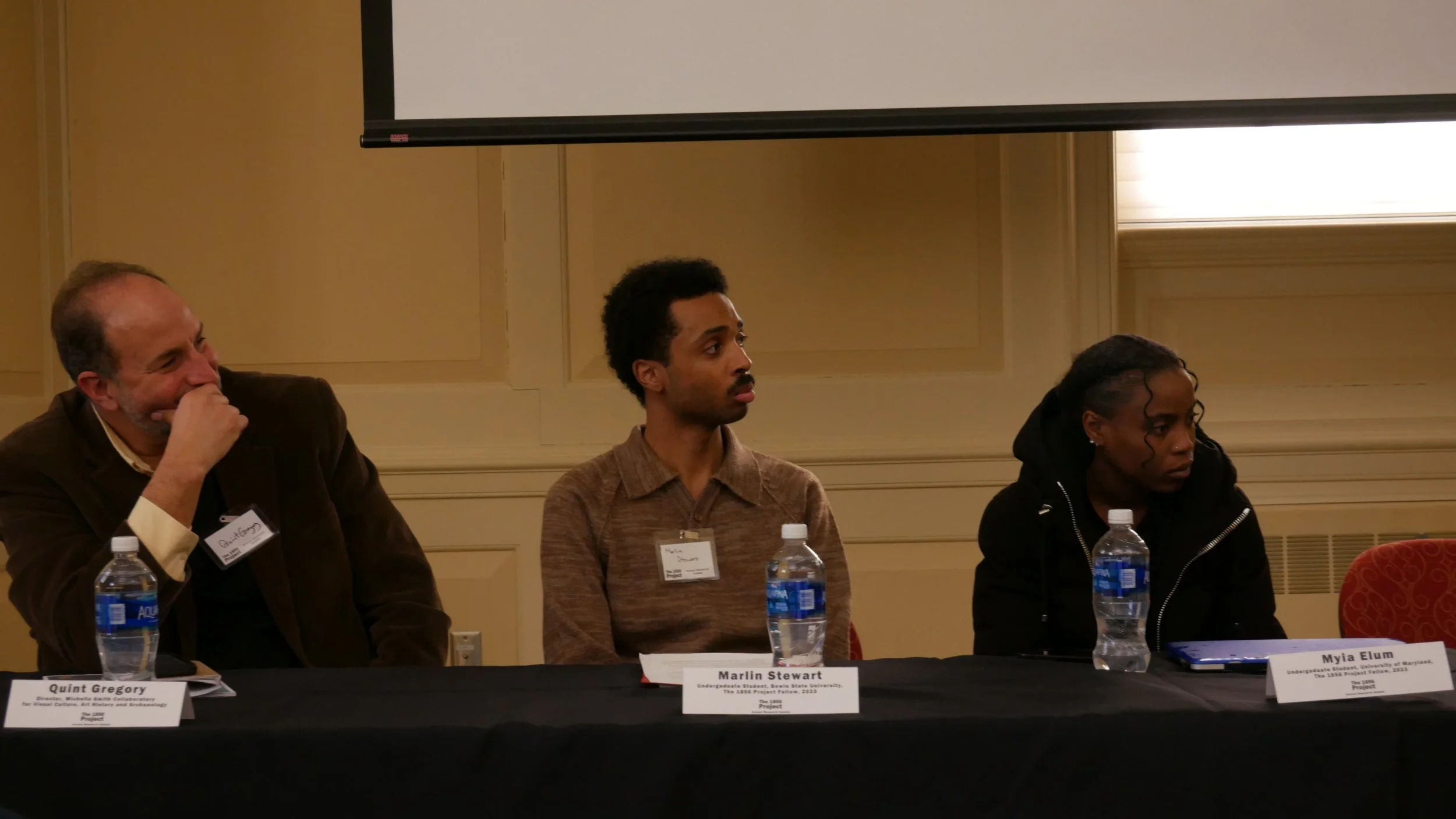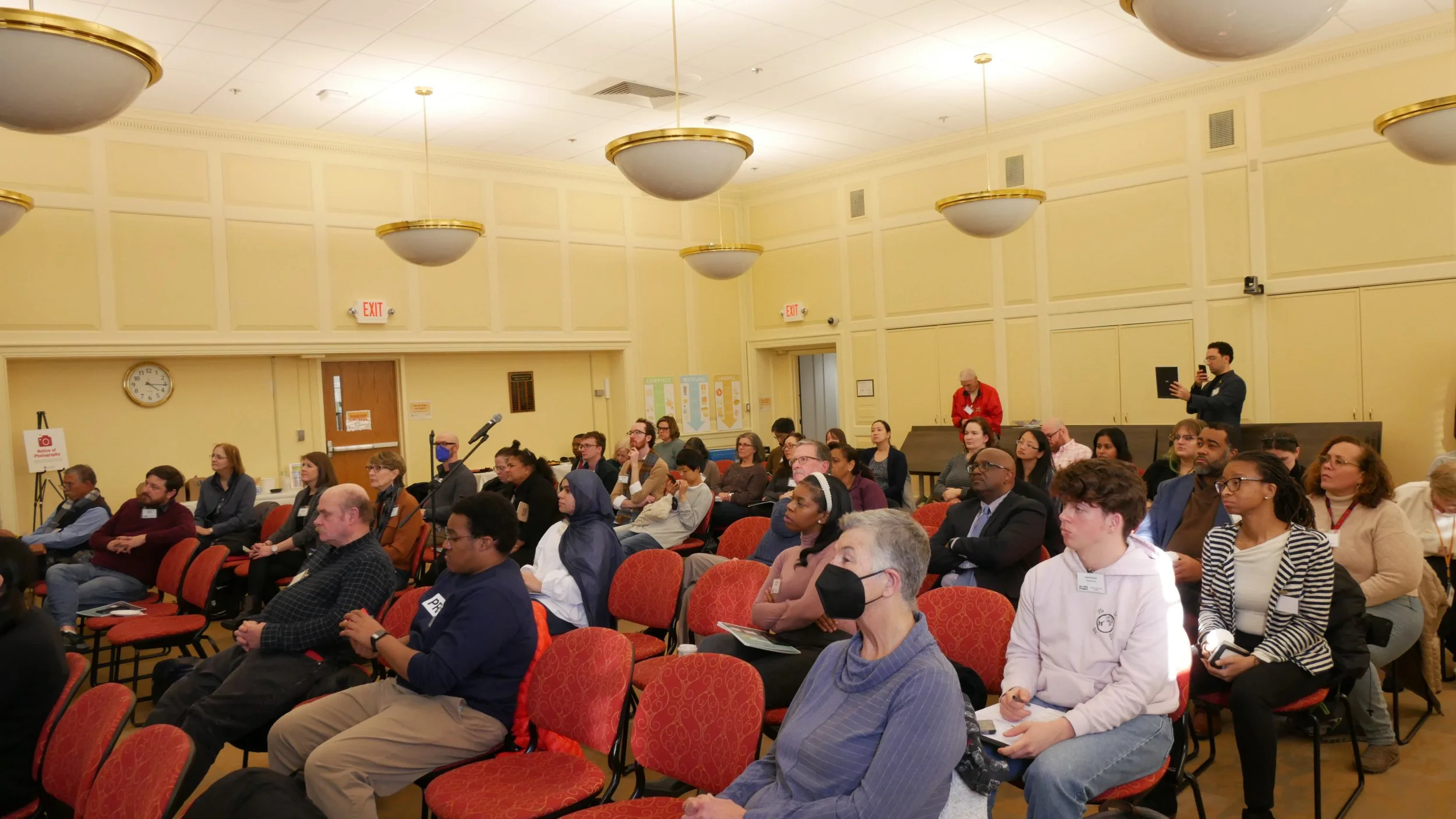1856 Project research explores university's ties with slavery
Co-Chair of the 1856 Project, Lae’l Hughes-Watkins, speaking at the first annual research update (Razak Diallo/The Black Explosion)
The 1856 Project held its first annual research update on Feb. 7. The first part of the report, “Reconstructing the Truth,” details the University of Maryland’s connection to slavery and local African American communities.
The 1856 Project was established four years ago, after the culmination of a 20 year pursuit to document the history of slavery at this university. The project is a chapter of an international consortium, Universities Studying Slaveries, which seeks to unveil the interconnected history of slavery at hundreds of universities.
The update includes findings uncovered in 2023 by 1856 project members, student participants from the College of Behavioral and Social Sciences summer research initiative and members of the Lakeland Community Heritage Project.
Deep Ties
The event was presented as a story of history with each segment unveiling a new piece of research connected to the wider story of the university’s relationship with slavery and African American communities.
Lae’l Hughes-Watkins, co-chair of the project, presented findings that showed how Maryland Agricultural College founder Charles B. Calvert benefited from slavery in order to enable the creation of the university. It also explained that the initial funding of the university was largely from the slave economy.
“What happened at that time, at the beginning of the institution, the reverberations are still felt,” Hughes-Watkins added. “They’re still challenges in the curriculum or the retention of Black faculty…I want students to be aware of that and then if they so choose, become part of the process to shift not only that narrative but also actually help put things into action.”
Maxine Gross, chairperson of the Lakeland Community Heritage Project, was a panelist at the event and presented the deeply rooted history that the Lakeland community has with the university. The 1856 Project provided the wedge that allowed the LCHP to connect members of its community to records in the university archives.
Lakelanders such as the Dory family, who established a legacy of sustaining food service operations for the university and had multi-generational ties to the institution, were honored through “The Heart of the Table” exhibit in the Parren J. Mitchell Art-Sociology Building.
Left to Right: Quint Gregory, Marlin Stewart, and Myia Elum (Razak Diallo/The Black Explosion)
Recent university graduate Myia Elum and senior history major at Bowie State University Marlin Stewart were participants of the 2023 summer research initiative and had the opportunity to present their findings highlighting the existence of 19th century African Americans in what is present-day College Park.
Stewart’s research detailed the history and perseverance of David Greenleaf and his family. Greenleaf was listed on the inventory checked after the death of John Eversfield in 1858, who contributed land to the university. Despite being formerly enslaved and lacking formal education, Greenleaf managed to become a member of the board of trustees for the Bladensburg Freedman’s School.
“We have to acknowledge that these people existed and retell these stories,” Stewart said.
Elum’s research focused on Josiah Adams, a free Black man who established the Cherry Hill cemetery in present-day Riverdale. Her work allowed her to understand a social disconnection she was experiencing as an Black woman on campus of African American descent.
“If you understand the history that goes into the founding of the University of Maryland, it would be that much more upsetting to understand that we have such a low representation,” Elum said.
The event audience, who met in the Special Events Room of McKeldin Library (Razak Diallo/The Black Explosion).
What’s Next?
Goals for the 1856 Project include hiring a postdoctoral researcher, establishing a digital archive accessible to the public and creating an immersive exhibition in Hornbake Library. The project also announced that the university will host the Universities Studying Slavery Conference in 2026.
Vice President of Diversity and Inclusion Georgina Dodge stated that the university hopes to get more faculty involved with the project and encourage hands-on research opportunities. She also encouraged students to apply for committee positions in the 1856 project.
“It’s an opportunity to be engaged right where you are,” Dodge said, “Movies are made about this stuff and you can actually touch some of this history and be responsible for its discovery.”
Divon Pender, a graduate student studying higher education, hopes that fellow students become aware of this research and share it with others.
“Let’s look at the school in its historical context and the exclusionary efforts that brought the school to its quote-unquote greatness today,” Pender said.



